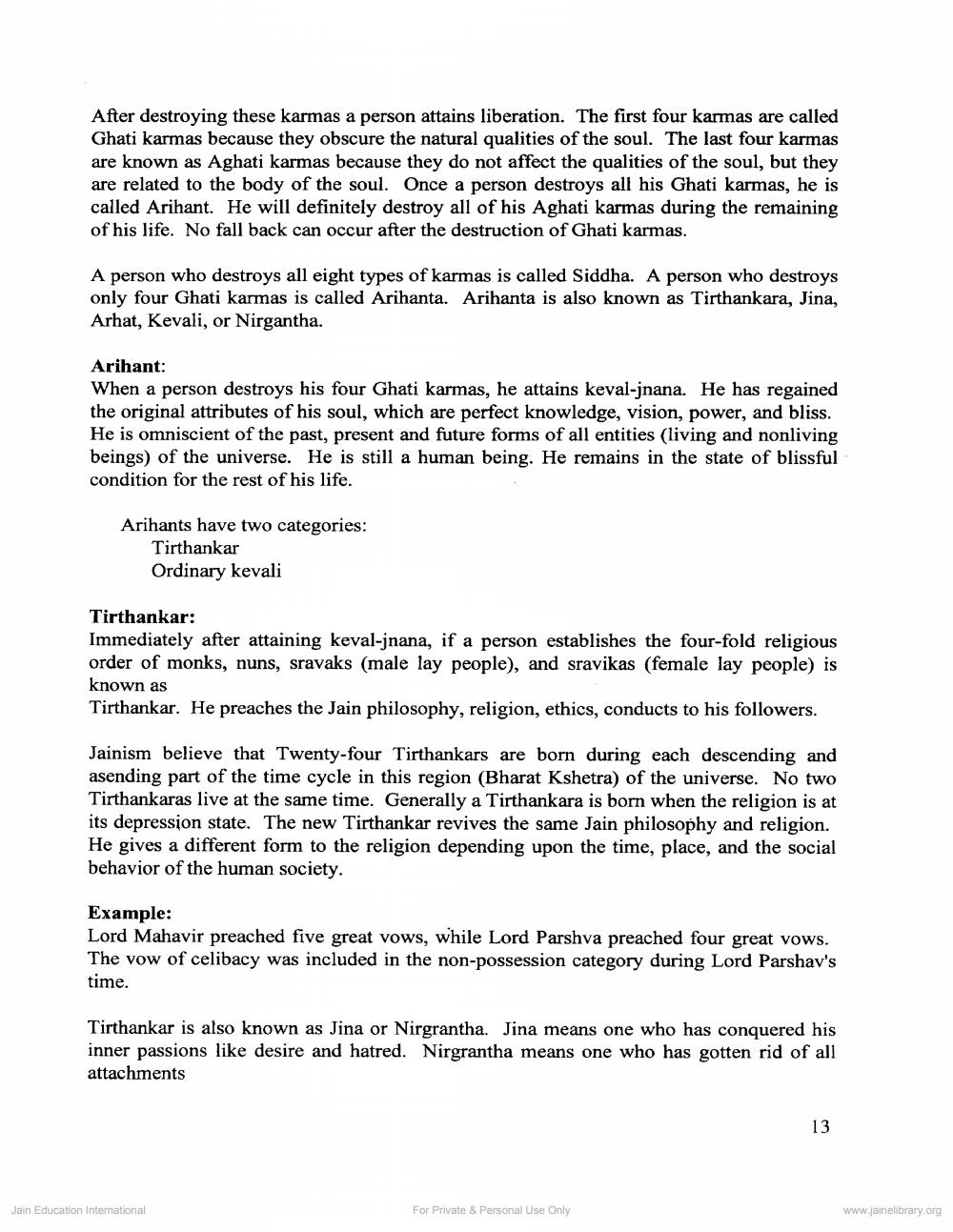________________
After destroying these karmas a person attains liberation. The first four karmas are called Ghati karmas because they obscure the natural qualities of the soul. The last four karmas are known as Aghati karmas because they do not affect the qualities of the soul, but they are related to the body of the soul. Once a person destroys all his Ghati karmas, he is called Arihant. He will definitely destroy all of his Aghati karmas during the remaining of his life. No fall back can occur after the destruction of Ghati karmas.
A person who destroys all eight types of karmas is called Siddha. A person who destroys only four Ghati karmas is called Arihanta. Arihanta is also known as Tirthankara, Jina, Arhat, Kevali, or Nirgantha.
Arihant: When a person destroys his four Ghati karmas, he attains keval-jnana. He has regained the original attributes of his soul, which are perfect knowledge, vision, power, and bliss. He is omniscient of the past, present and future forms of all entities (living and nonliving beings) of the universe. He is still a human being. He remains in the state of blissful condition for the rest of his life.
Arihants have two categories:
Tirthankar Ordinary kevali
Tirthankar: Immediately after attaining keval-jnana, if a person establishes the four-fold religious order of monks, nuns, sravaks (male lay people), and sravikas (female lay people) is known as Tirthankar. He preaches the Jain philosophy, religion, ethics, conducts to his followers.
Jainism believe that Twenty-four Tirthankars are born during each descending and asending part of the time cycle in this region (Bharat Kshetra) of the universe. No two Tirthankaras live at the same time. Generally a Tirthankara is born when the religion is at its depression state. The new Tirthankar revives the same Jain philosophy and religion. He gives a different form to the religion depending upon the time, place, and the social behavior of the human society.
Example: Lord Mahavir preached five great vows, while Lord Parshva preached four great vows. The vow of celibacy was included in the non-possession category during Lord Parshav's time.
Tirthankar is also known as Jina or Nirgrantha. Jina means one who has conquered his inner passions like desire and hatred. Nirgrantha means one who has gotten rid of all attachments
hatred. Sirg'antha' means one who has gotten rid of lain
13
Jain Education Intemational
For Private & Personal Use Only
www.jainelibrary.org




